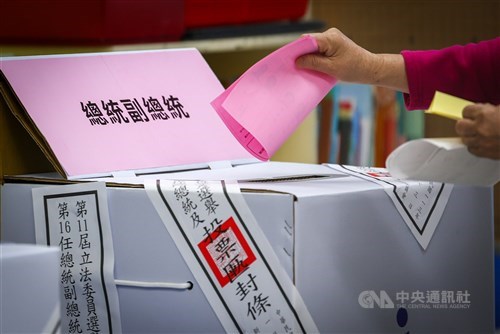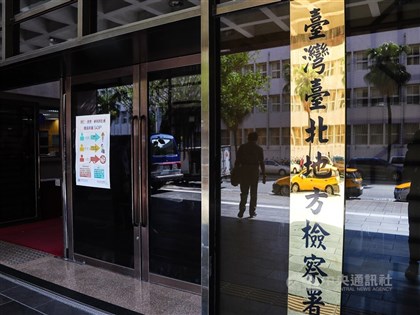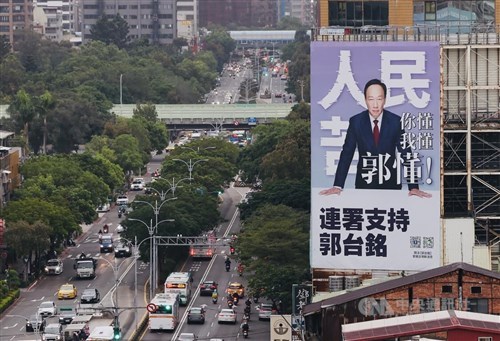ELECTION 2024/Chinese coercion expected to continue with Lai's win: Foreign scholars
01/14/2024 09:02 AM
Chinese strategies involving economic coercion and psychological warfare against Taiwan are expected to continue following the victory of Democratic Progressive Party (DPP) candidate Lai Ching-te (賴清德) in the presidential election, scholars said Saturday.
(Full text of the story is now in CNA English news archive. To view the full story, you will need to be a subscribed member of the CNA archive. To subscribe, please read here.)
More in ELECTION 2024
![5 suspects, including association head, indicted for election law breach]() 5 suspects, including association head, indicted for election law breachThe head of a new immigrant association and four other people have been indicted for suspected violations of Taiwan's election law as well as the Anti-Infiltration Act, according to the Ciaotou District Prosecutors Office in Kaohsiung.03/07/2024 08:11 PM
5 suspects, including association head, indicted for election law breachThe head of a new immigrant association and four other people have been indicted for suspected violations of Taiwan's election law as well as the Anti-Infiltration Act, according to the Ciaotou District Prosecutors Office in Kaohsiung.03/07/2024 08:11 PM![Taipei prosecutors indict 7 in Terry Gou signature-buying case]() Taipei prosecutors indict 7 in Terry Gou signature-buying caseTaipei prosecutors on Tuesday indicted seven people for stealing ID numbers from e-commerce sites to help business tycoon Terry Gou's (郭台銘) presidential petition drive last year.03/05/2024 05:52 PM
Taipei prosecutors indict 7 in Terry Gou signature-buying caseTaipei prosecutors on Tuesday indicted seven people for stealing ID numbers from e-commerce sites to help business tycoon Terry Gou's (郭台銘) presidential petition drive last year.03/05/2024 05:52 PM![Pingtung Council speaker indicted in Terry Guo signature buying case]() Pingtung Council speaker indicted in Terry Guo signature buying casePingtung County Council Speaker Chou Tien-lun (周典論) has been indicted on suspicion of buying signatures for business tycoon Terry Gou's (郭台銘) presidential run, the Pingtung District Prosecutors Office said Wednesday.02/21/2024 09:14 PM
Pingtung Council speaker indicted in Terry Guo signature buying casePingtung County Council Speaker Chou Tien-lun (周典論) has been indicted on suspicion of buying signatures for business tycoon Terry Gou's (郭台銘) presidential run, the Pingtung District Prosecutors Office said Wednesday.02/21/2024 09:14 PM
Latest
- Society
Mercury set to drop as low as 10°C in 17 counties, cities Thursday
01/07/2026 09:33 PM - Business
Taiwan's inflation below 2% alert in 2025, lowest in 5 years
01/07/2026 08:47 PM - Culture
Taipei Int'l Book Exhibition to feature at least 18 Thai authors
01/07/2026 08:47 PM - Business
Fair Trade Commission approves Uber's acquisition of Crown Taxi
01/07/2026 08:12 PM - Culture
NCKU tops Taiwan's 2026 University Brand Power survey
01/07/2026 06:53 PM


